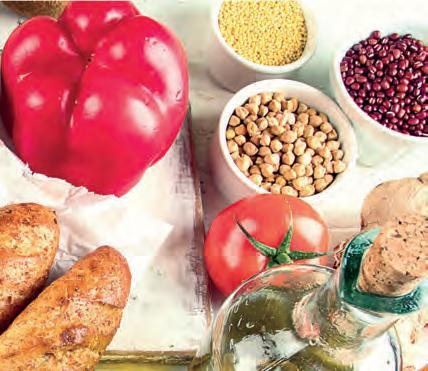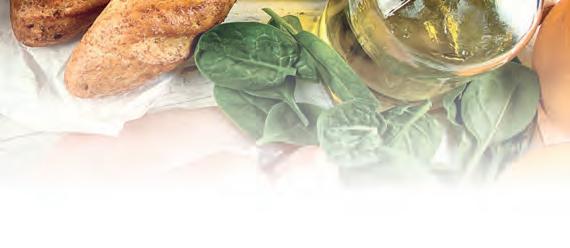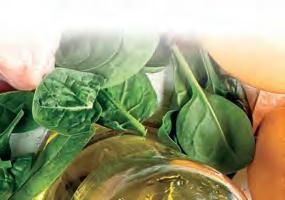
3 minute read
Growing Your Energy Levels & Immune System

Boost Your Energy Levels & Immune System
Advertisement


With Covid cases surging, our energy levels and immune systems could use a boost. We often turn to comfort foods on dreary days, but eating the right foods can strengthen our bodies in better ways. Here are some of the most helpful nutrients and the foods to find them in.

VITAMIN B12 Found in foods such as milk, meat and fortified foods like breakfast cereals.
Vitamin B12 can help combat the winter blahs. It plays an important role in producing serotonin, which helps regulate mood, says Mark Moyad, a director of complementary and alternative medicine at the University of Michigan Medical Center. Getting enough B12 may help thwart symptoms of fatigue and even depression, he says. “When B12 is off, there are so many things that can go wrong. Donald Hensrud, director of the Mayo Clinic’s Healthy Living Program in Rochester, Minn., says that about 15% of people over the age of 65 lack some B12, which is why he often recommends supplements of 500 to 1,000 micrograms daily.
VITAMIN C Found in foods including citrus fruits, tomatoes and potatoes.
Vitamin C helps the immune system function properly. It won’t likely cure or prevent colds, but has been shown to slightly reduce duration of symptoms, says Dr. Moyad. It may also help those whose systems are under strain. One 2013 review of 29 clinical trials found that while taking vitamin C regularly didn’t reduce the incidence of colds in the general population, it may have helped some 598 subjects exposed to periods of physical exertion, such as marathon runners and skiers. The recommended daily allowance of C is 75 to 90 milligrams a day for adults. One orange contains 51 milligrams.
VITAMIN D Found in fatty fish, eggs, liver and mushrooms.
Some researchers are looking into possible links between Vitamin D deficiency and Covid; findings from studies examining the use of Vitamin D to prevent or treat Covid aren’t conclusive, but some are promising, experts say. Vitamin D is often added to foods such as milk and orange juice. The body can also make Vitamin D through exposure to sunlight. For people who are vegan or who live in northern latitudes, doctors may recommend taking Vitamin D as supplements to ensure adequate levels, says Barbara Davis, a registered dietitian in Canton, Conn.
ZINC Found in foods including oysters, red meat, poultry, crab and lobsters, beans, nuts and whole grains.
Zinc can help the immune system fight bacteria and viruses. Researchers have tested the effectiveness of zinc on the severity and duration of cold symptoms, with mixed results. “The consensus seems to be that taking zinc at the first sign of a cold does seem to shorten the duration slightly versus not taking the zinc,” says Craig Hopp, a deputy division director at the National Center for Complementary and Integrative Health, an arm of the National Institutes of Health.
IRON Found in foods including meat, seafood, poultry, beans, spinach, iron-fortified cereals and breads.
Not getting enough iron can lead to anemia, whose symptoms can include tiredness, memory and concentration lapses and reduced ability to fight infections. Legumes such as white beans, lentils and peas carry “nonheme” iron, found in plant foods and iron-fortified food products. While most Americans get enough iron, certain groups are more likely to have trouble meeting thresholds, such as premenopausal women.





